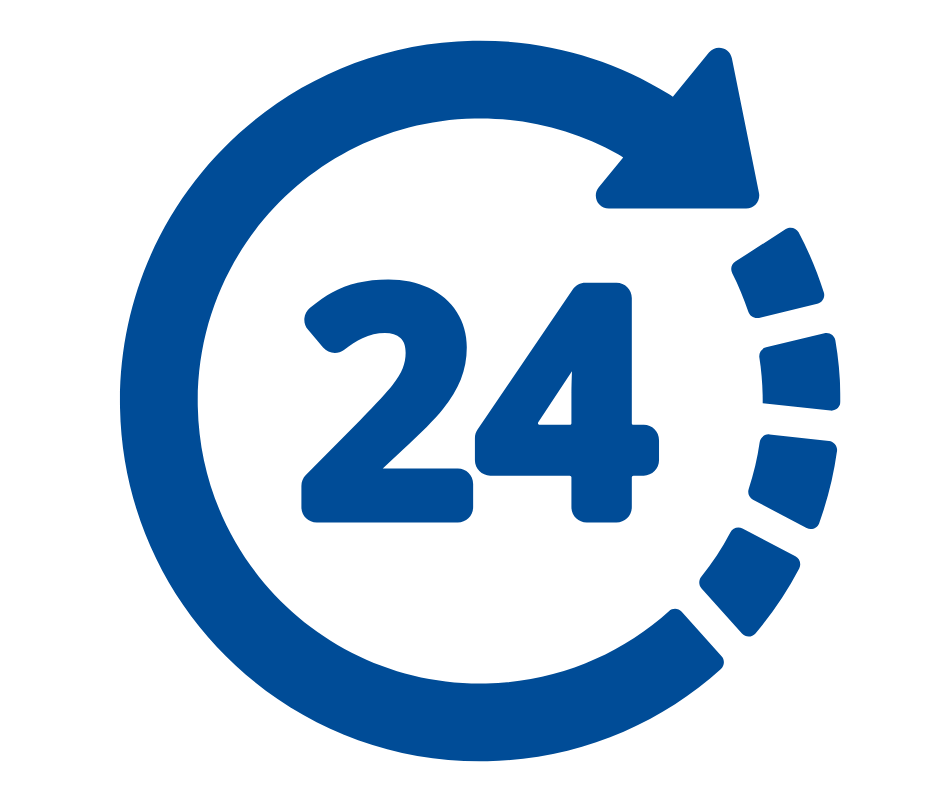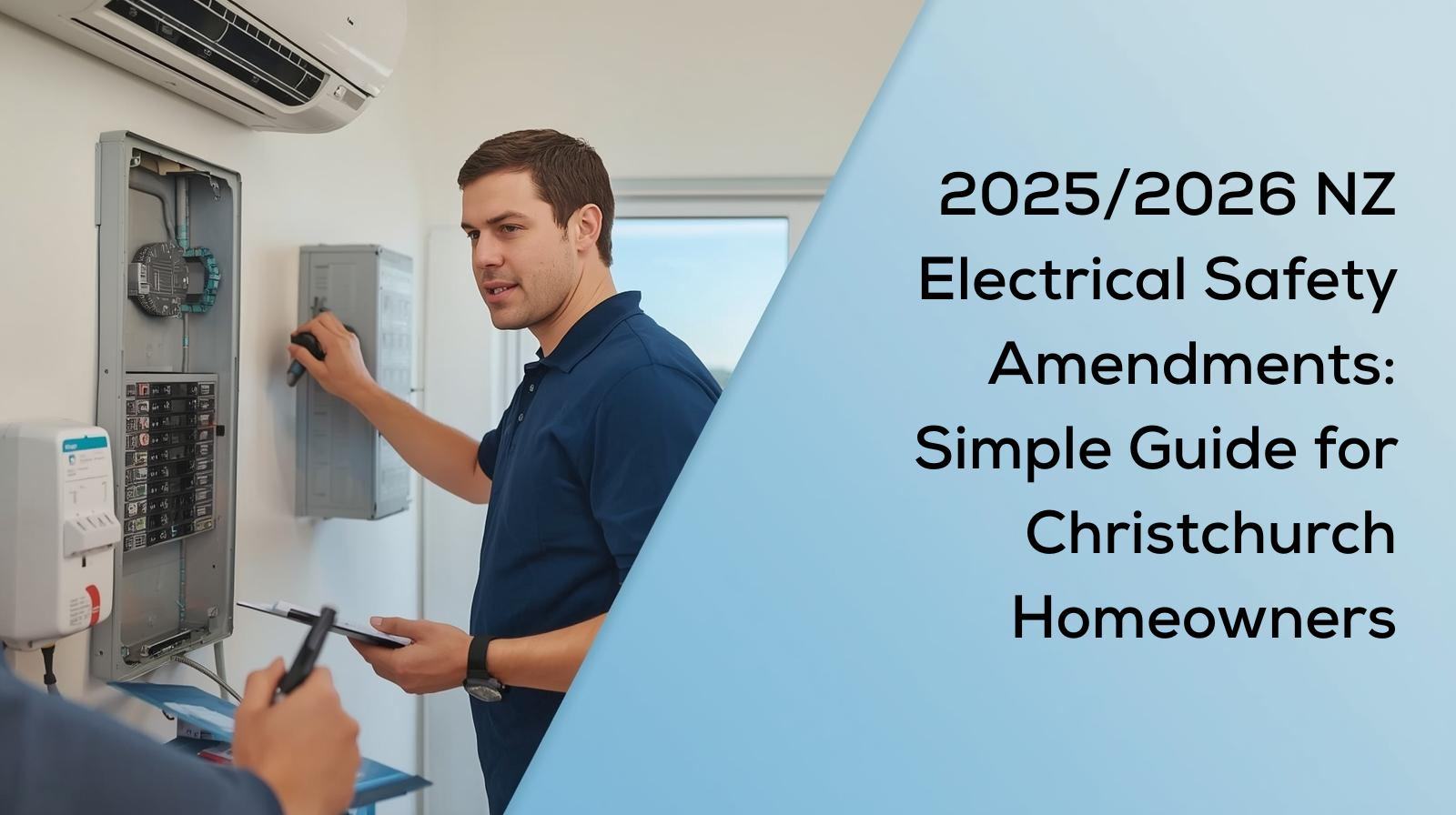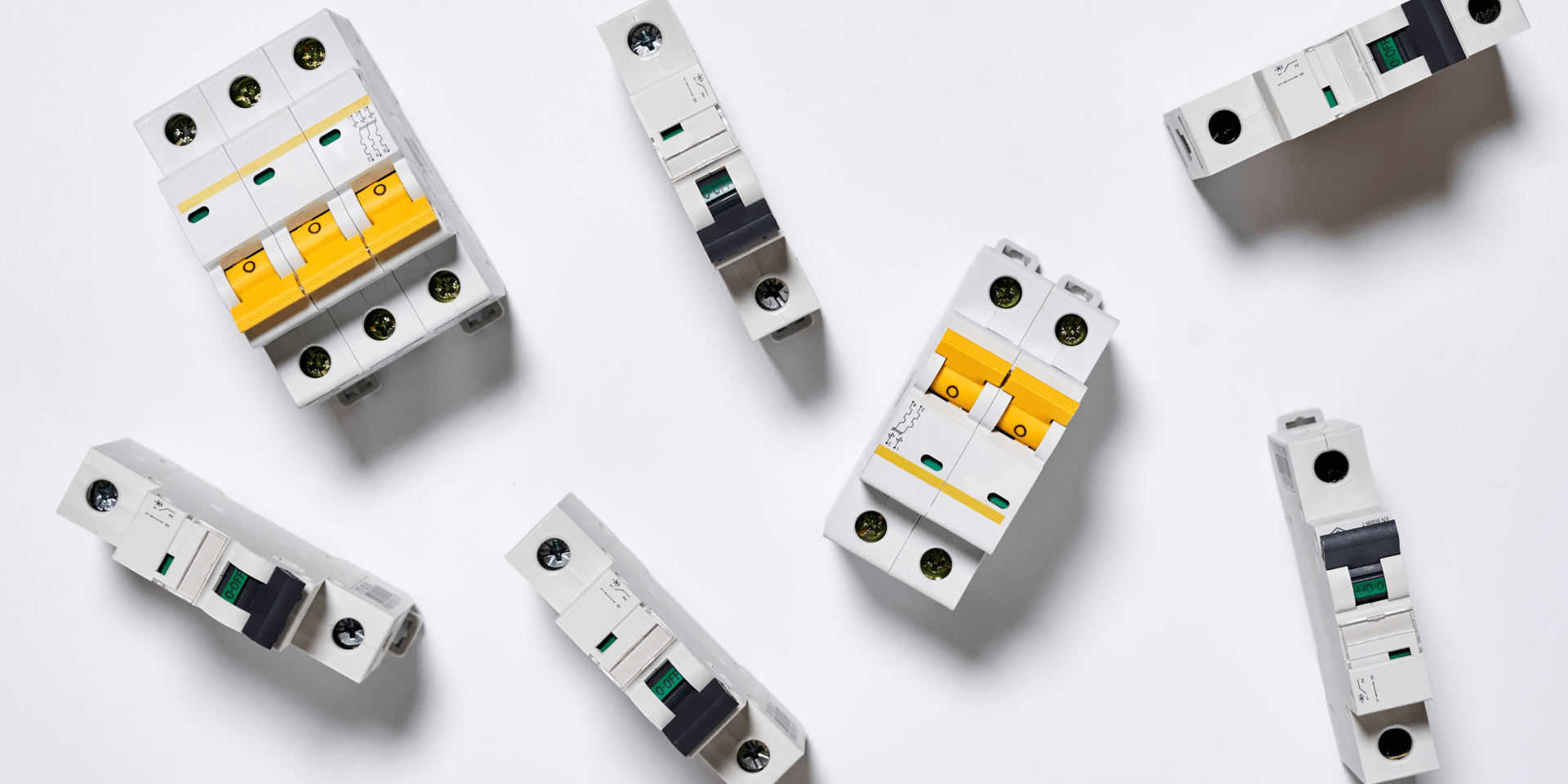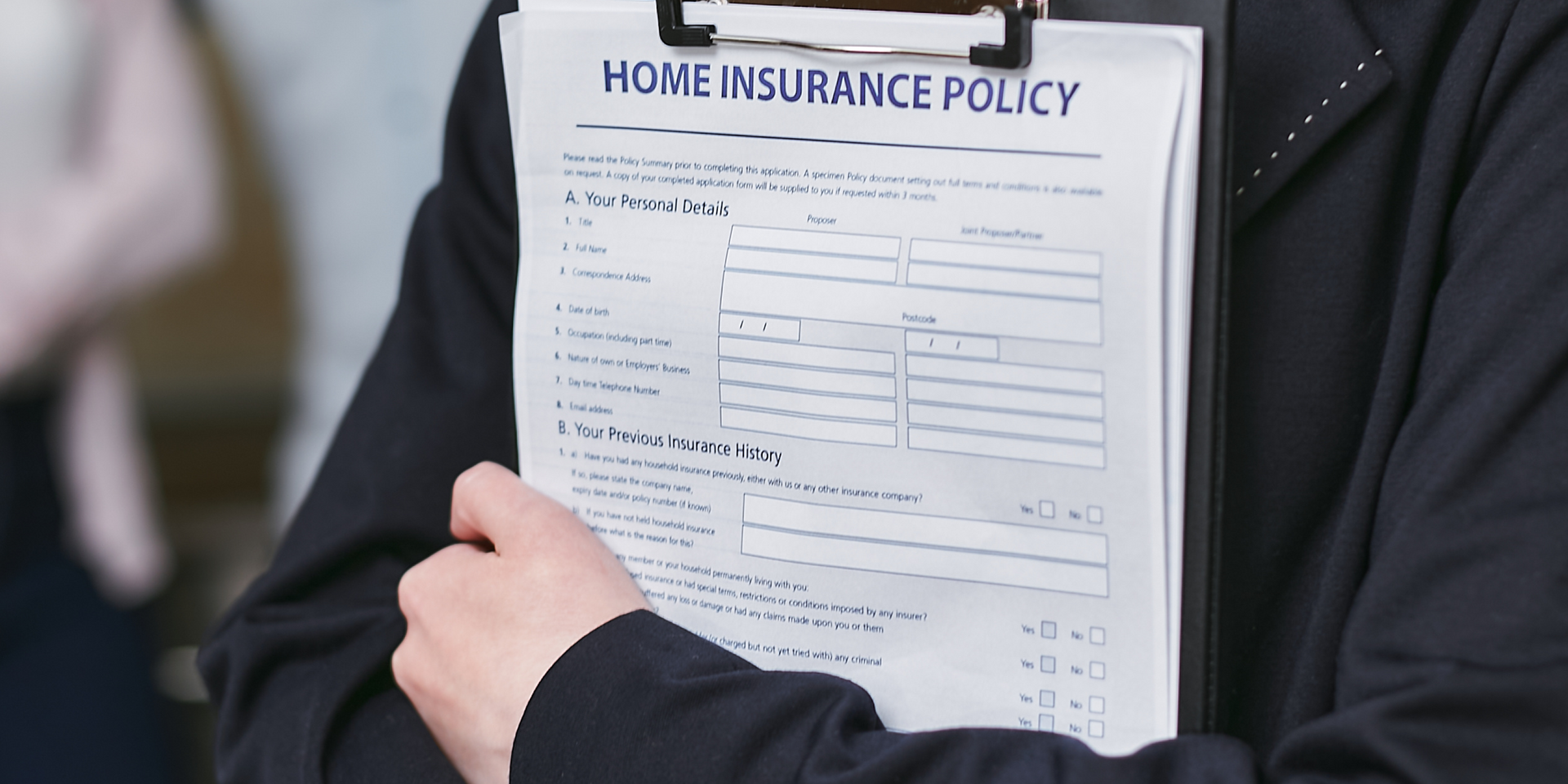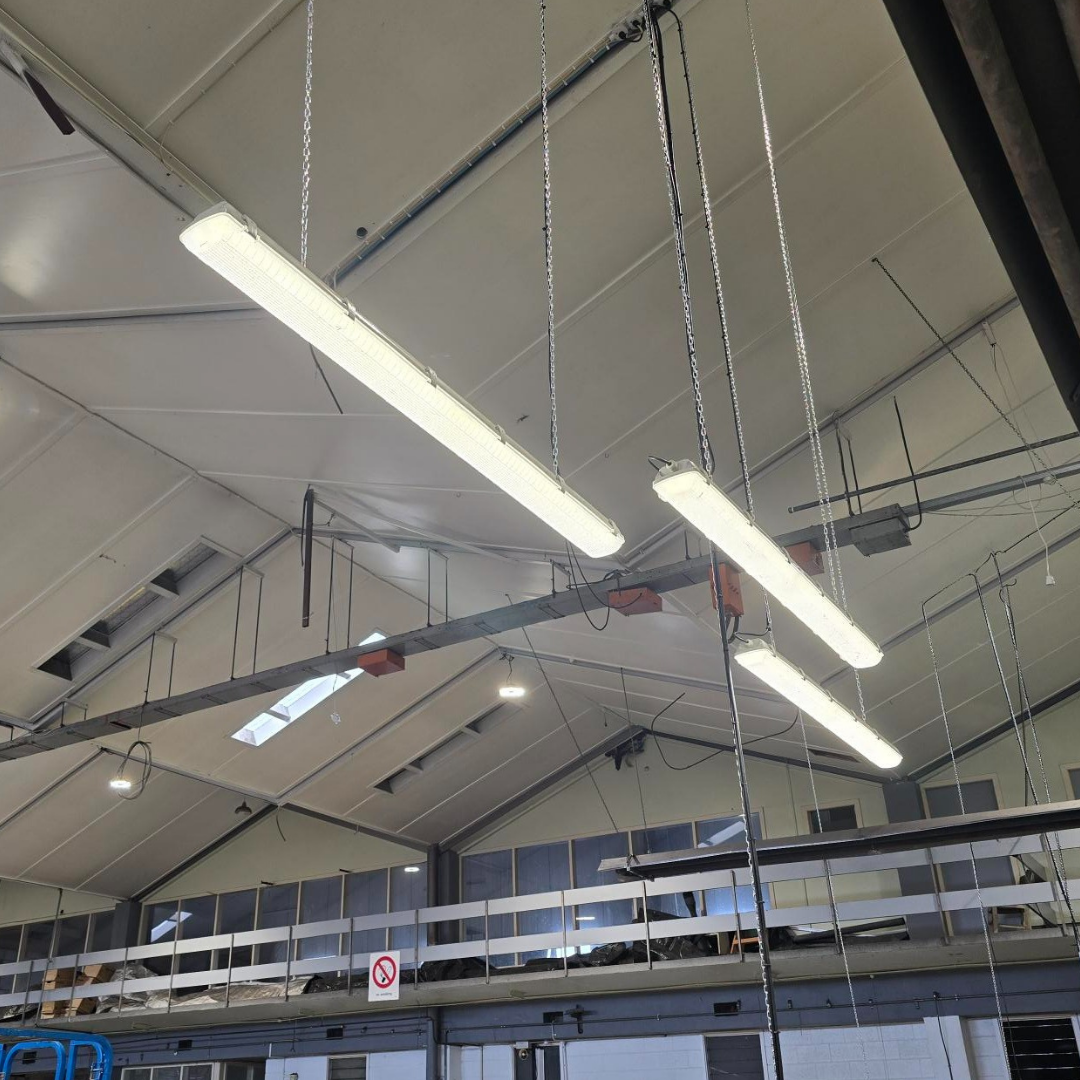Empowering Energy Independence During Power Cuts
Harnessing the Power of the Sun:
Unveiling the Benefits of Solar Energy and Its Versatile Systems

Solar power, has emerged as a game-changer as a renewable energy source that provides not only energy independence, but also a clean and sustainable solution to our electricity needs.
In this article, we will explore the numerous benefits of solar power, understanding how it can serve as a reliable source of electricity during power outages. Additionally, we will delve into the different types of solar systems available, including grid-tied, off-grid, and hybrid systems.
3 Key Benefits Of Solar
Energy Independence
One of the most appealing aspects of solar power is its ability to provide energy independence.
By producing their own electricity, individuals and businesses become less reliant on the traditional power grid, mitigating the impact of power outages and ensuring a continuous supply of electricity for key appliances, such as heating.
Environmentally Friendly
One of the primary advantages of solar power is its eco-friendliness.
Solar panels produce electricity by converting sunlight into energy, thereby significantly reducing greenhouse gas emissions and reliance on fossil fuels. By opting for solar power, individuals and businesses can make a substantial contribution to combating climate change and preserving the environment for future generations.
Cost Savings
Solar power offers long-term cost savings. While the initial investment may seem large, solar systems pay for themselves over time through reduced energy bills. Moreover, in some regions, individuals can sell excess electricity generated by their solar panels back to the grid, further offsetting costs and potentially earning additional income.
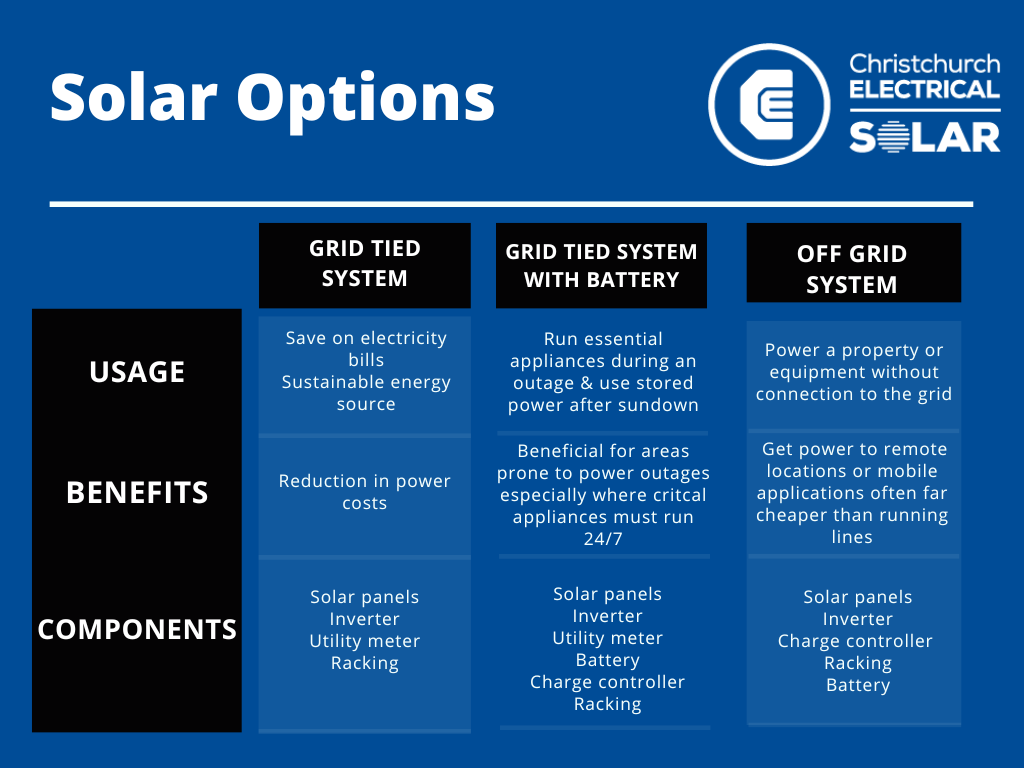
Types of Solar Systems
Grid-Tied Systems
Grid-tied solar systems are the most common type and are connected to the main power grid. These systems generate electricity during daylight hours, and any excess power is fed back into the grid. When the solar panels are not producing electricity, such as during nighttime, electricity is drawn from the grid.
Grid-tied systems offer a seamless and cost-effective solution, as they eliminate the need for batteries for energy storage.
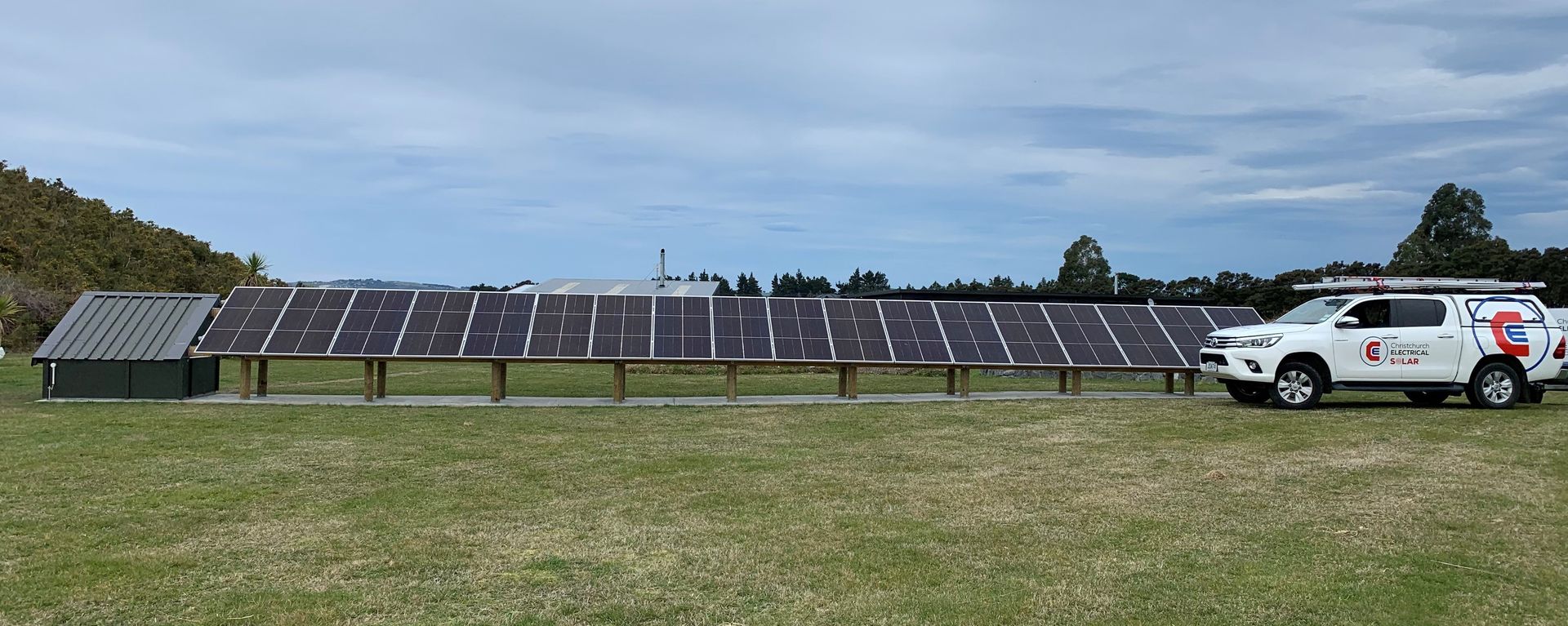
Off-Grid Systems
Off-grid solar systems, also known as standalone systems, operate independently from the power grid. They are designed to generate and store electricity in batteries, providing a reliable source of power in areas where the grid is inaccessible or unreliable. Off-grid systems are ideal for remote locations, rural communities, and emergency situations, offering energy independence and ensuring a consistent power supply, even during power outages.
Hybrid Systems/Grid Tied With Battery System
Hybrid solar systems combine the best of both worlds, incorporating elements of both grid-tied and off-grid systems.
These systems are connected to the power grid but also have battery storage capacity. Hybrid systems provide the flexibility to use solar energy during the day and draw from the grid or batteries at night, during times of high energy demand and when there is a grid power outage.
They are an excellent option for areas with intermittent grid supply or for those seeking a balance between energy independence and grid connection.
Solar power has transformed the energy landscape, offering numerous benefits while addressing environmental concerns. Its ability to provide uninterrupted power during outages makes it an attractive choice for individuals and businesses alike.
Whether through grid-tied systems, off-grid setups, or hybrid solutions, solar power is paving the way for a sustainable and reliable energy future. By harnessing the power of the sun, we can create a cleaner, greener, and more resilient world for generations to come.
To learn more, book a free consultation or to find the right system design to suit your power needs, contact the team 03 366 1718.
Share article:



